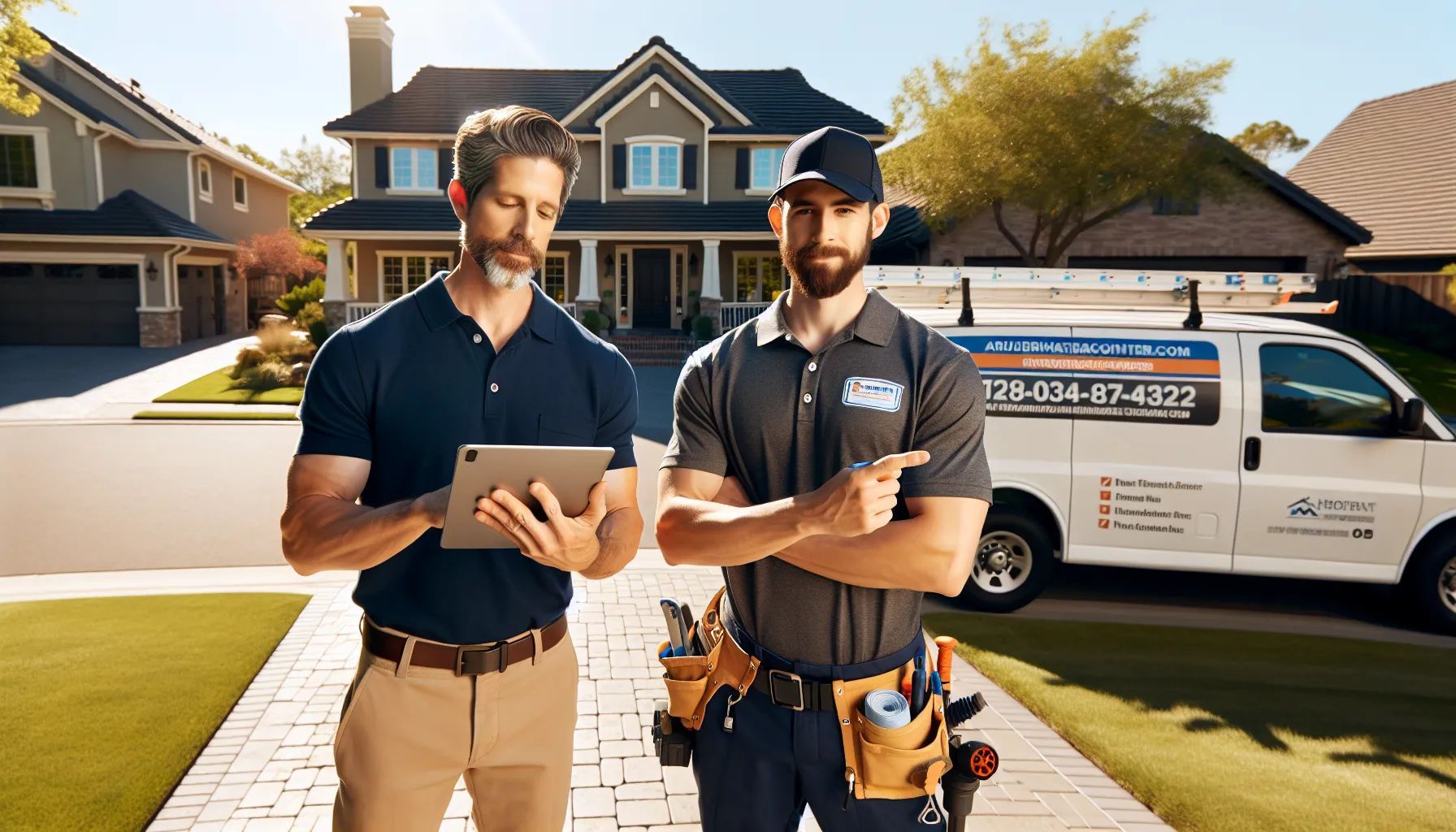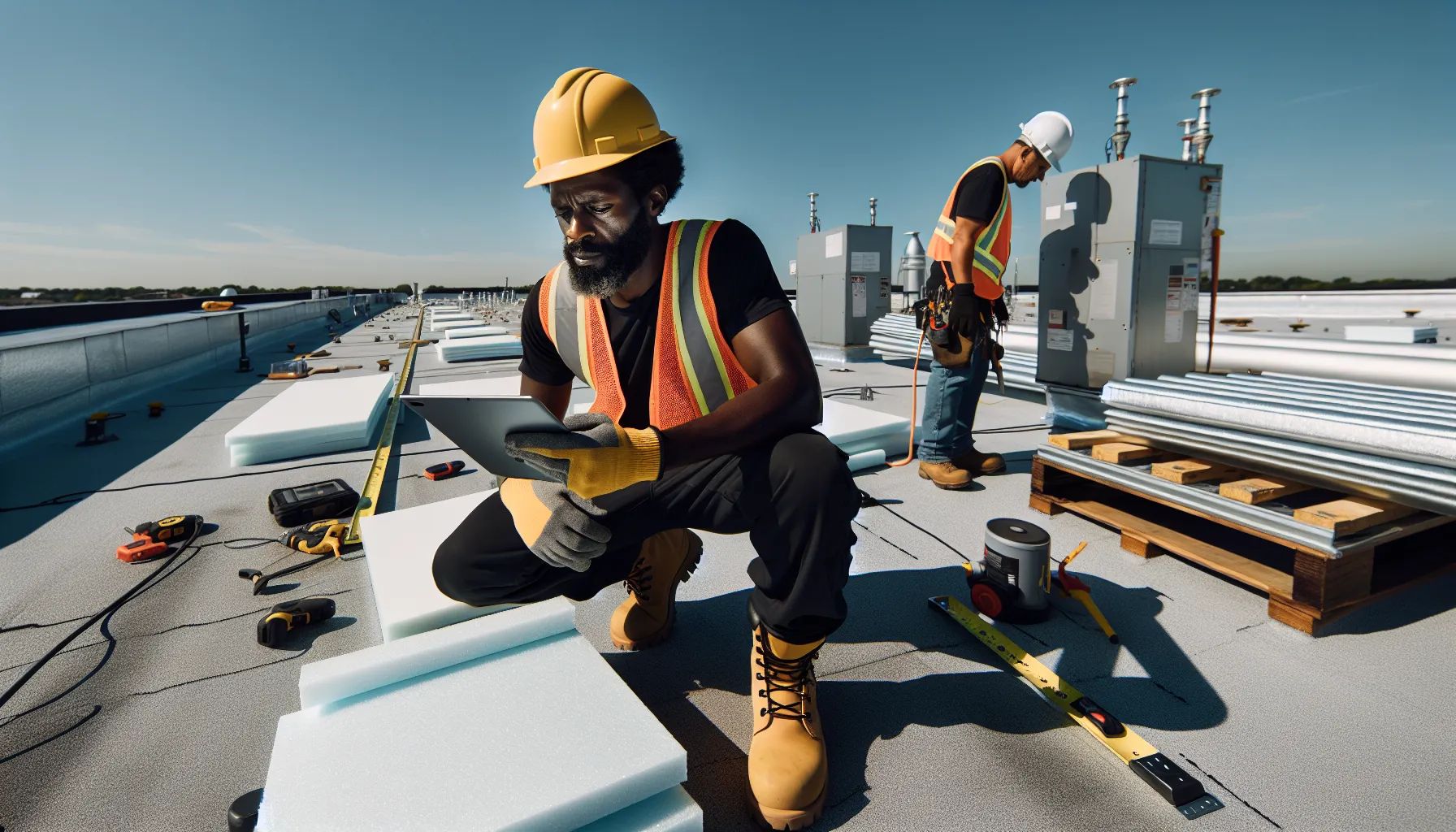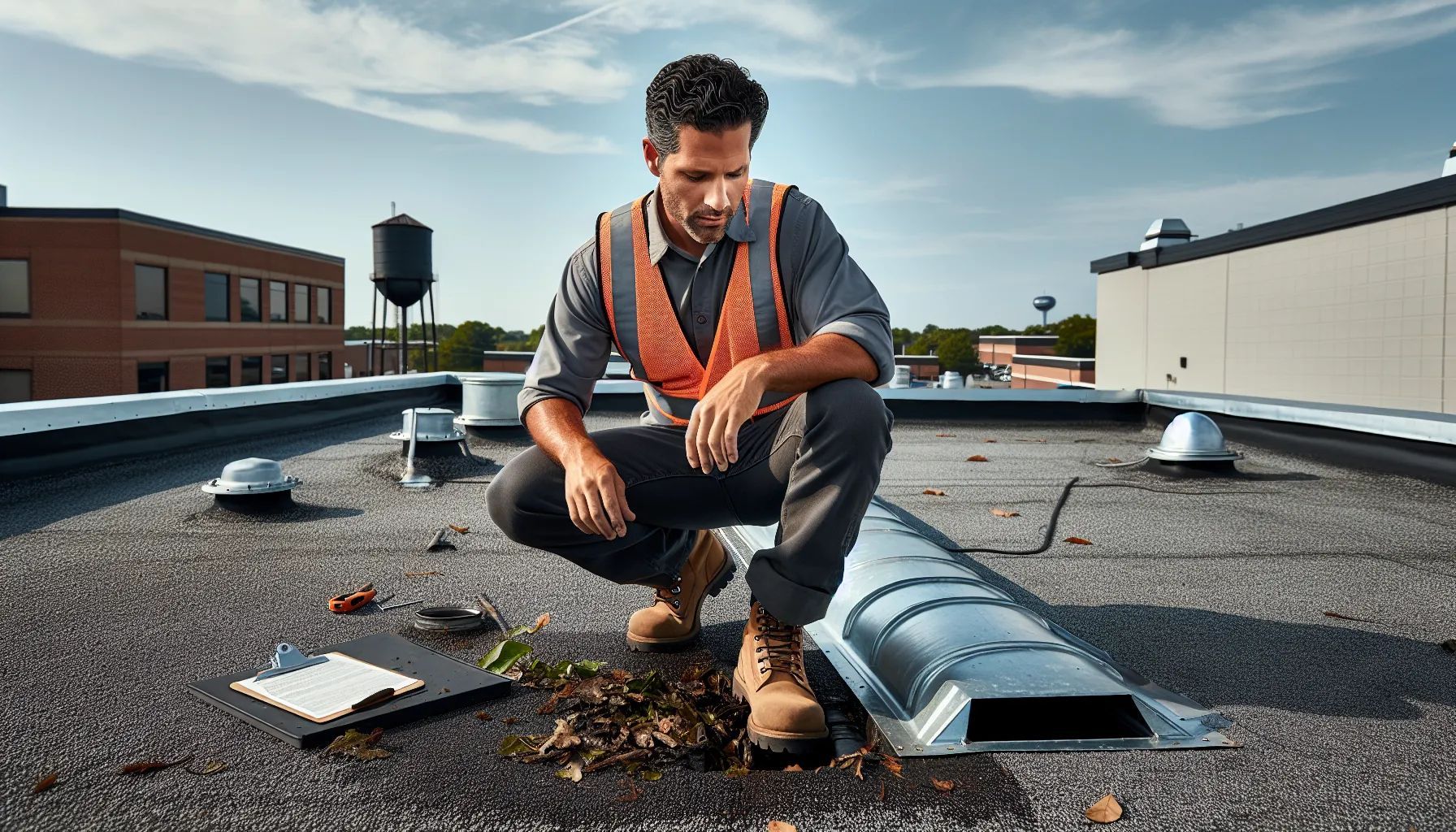How to Check If a Roofing Company Is Legit

Learning how to check if a roofing company is legit can save you thousands of dollars and countless headaches. Every year, homeowners fall victim to unlicensed contractors, fraudulent roofers, and fly-by-night operations that promise quality work but deliver poor results, or worse, disappear with your deposit. We've seen too many people end up with shoddy repairs, voided warranties, and zero recourse. The good news? Spotting a legitimate roofing company isn't complicated when you know what to look for. In this guide, we'll walk you through the essential steps to verify credentials, assess reputation, and identify the warning signs that separate trustworthy contractors from scammers.
Verify Licensing and Insurance

This is the first and most critical step. A legitimate roofing company carries proper licensing and insurance, which protects both you and their workers. Without these, you're taking on massive liability and legal risk.
Check for Proper Licensing Requirements
Most U.S. states require roofing contractors to hold a valid contractor's license. This isn't just a formality, it confirms the company has met minimum standards for training, experience, and financial stability.
Start by asking the roofer for their license number. Then verify it through your state licensing board or local government database. Many states offer online lookup tools where you can search by company name or license number. If the contractor hesitates to provide this information or claims they "don't need a license" for your job, walk away.
Keep in mind that licensing requirements vary by state. Some states have strict statewide rules, while others delegate licensing to counties or municipalities. In states with minimal oversight, licensing becomes even more important as a signal of professionalism.
Confirm Adequate Insurance Coverage
Insurance is non-negotiable. We recommend asking for proof of at least two types:
- General liability insurance covers property damage and injuries that occur during the roofing project. Many states require a minimum of $1,000,000 per occurrence. This protects you if, for example, a worker accidentally damages your siding or a tool falls through a window.
- Workers' compensation insurance is equally important, especially if the company has employees. If a roofer gets injured on your property and the company lacks workers' comp, you could be held financially responsible for medical bills and lost wages.
Don't just accept a printed certificate, call the insurance provider directly to confirm the policy is active and covers roofing work at your address. Insurance certificates can be faked or outdated. A quick phone call adds a layer of verification that protects you.
For commercial roofing projects, also request evidence of commercial auto insurance. This covers any vehicles used during the job.
Some states require roofing contractors to carry a surety bond, which provides consumer protection if the contractor fails to meet contract terms or goes out of business mid-project. Check your state's bonding requirements and ask for proof if applicable.
Research the Company's Reputation and Reviews

A company's track record tells you a lot about what to expect. We always dig into online reviews and search for any complaints before making a decision.
Start with a simple Google search using the company's name plus words like "complaint," "scam," or "lawsuit." This often surfaces issues that don't show up on review sites. Check multiple platforms, Google Reviews, Yelp, and industry-specific sites, to get a balanced view.
Pay attention to patterns, not just one-off complaints. Every company gets a negative review occasionally, but repeated issues around the same problem (missed deadlines, poor communication, surprise charges) are red flags. Look at how the company responds to criticism. Do they address concerns professionally, or do they ignore complaints or respond defensively?
Also check the volume and recency of reviews. A company with five glowing reviews from three years ago might have changed ownership or quality. Fresh, consistent feedback matters more.
Don't ignore reviews that seem overly positive or generic, they could be fake. Authentic reviews usually include specific details about the project, timeline, and experience.
Examine Their Physical Business Presence

A traceable phone number is also important. Landlines tied to a business address are more reliable than mobile-only contacts. If a company only provides a cell number with no physical address, that's a warning sign they might disappear after collecting your deposit.
Check how long they've been in business. Startups aren't automatically bad, but companies with several years of local history have more to lose by delivering poor work. They've built relationships and reputation in the community.
Visit their website if they have one. Does it look professional and include verifiable contact information, photos of past projects, and details about their services? A bare-bones site or no online presence at all can indicate a less-established or less-serious operation.
Request and Review References
Any reputable roofing company should gladly provide references from recent customers. We make it a point to actually call those references, not just collect the list.
Ask for at least three recent customers whose projects are similar in size and scope to yours. When you contact them, ask specific questions:
- Was the project completed on time and within budget?
- Did the crew show up when scheduled and work professionally?
- How was communication throughout the job?
- Were there any surprise costs or issues?
- Would you hire them again?
If the references are vague or overly enthusiastic without details, be cautious. Authentic references usually mention both positives and minor hiccups.
Some contractors might also offer to show you photos of completed work or even drive you by recent job sites. This transparency is a good sign. Companies that resist providing references or claim all their clients want privacy should raise suspicion.
Assess Their Contract and Warranty Terms
A solid, written contract is your safety net. We never move forward without one, and neither should you.
A legitimate roofing company provides a detailed contract that includes project scope, materials to be used, start and completion dates, payment schedule, and warranty information. Everything should be spelled out clearly, with no vague language or missing details.
Review the payment terms carefully. Reputable contractors typically ask for a reasonable deposit (often 10-30%) and schedule progress payments tied to milestones. Be cautious of anyone demanding full payment upfront or large cash payments.
Warranties are critical. Ask about both the manufacturer's warranty on materials and the contractor's workmanship warranty. A good roofer stands behind their work for several years. If the contract includes no warranty or only a very short one, that's a red flag.
Read the fine print about cleanup, debris removal, and what happens if timelines aren't met. Make sure you understand your rights if the contractor fails to complete the job or if problems arise after completion.
Never sign a contract with blank sections or one you haven't fully read. And if a contractor pressures you to sign immediately without time to review, that's a major warning sign.
Watch Out for Red Flags
Even if a company checks some boxes, certain behaviors should make you pause. We've learned to spot these red flags early.
High-Pressure Sales Tactics
Reputable roofing contractors give you time to review their proposal, compare quotes, and make an well-informed choice. If a salesperson pushes you to sign a contract on the spot, claims a "limited-time discount," or uses fear tactics about your roof's condition, step back.
Legitimate companies understand that roofing is a significant investment. They're confident enough in their work to let you think it over. High-pressure tactics often signal a contractor more interested in closing a quick sale than delivering quality service.
Unusually Low Estimates or Cash-Only Payments
If one estimate comes in drastically lower than others, ask why. Sometimes it's a sign the contractor plans to use substandard materials, cut corners on labor, or isn't properly licensed and insured.
Cash-only payment requests are another red flag. Legitimate contractors accept checks or credit cards and provide receipts. Cash transactions make it harder to track payments and can indicate the company is trying to avoid taxes or operate off the books. You lose important consumer protections when you pay cash.
Other warning signs include contractors who show up unsolicited (door-to-door), have no local references, or operate under multiple business names. Trust your instincts, if something feels off, it probably is.
Verify Professional Certifications and Affiliations
Certifications and memberships in professional associations add another layer of credibility. We look for these as signs a company invests in quality and stays current with industry standards.
Check if the roofing company holds certifications from major manufacturers like GAF, CertainTeed, or Owens Corning. These manufacturers certify contractors who meet specific training and quality standards. Certification often comes with better warranties and access to premium products.
Membership in industry associations like the National Roofing Contractors Association (NRCA) or local trade groups also signals professionalism. These organizations require members to adhere to codes of ethics and often provide ongoing training.
Don't just take the contractor's word for it. Visit the association or manufacturer's website and use their contractor lookup tools to confirm the affiliation is current. Some contractors falsely claim certifications they don't actually hold.
While certifications aren't mandatory, they demonstrate a commitment to professionalism and continuous improvement. Combined with proper licensing, insurance, and solid reviews, they paint a picture of a company that takes its work seriously.
Conclusion
Hiring a legitimate roofing company isn't just about getting a good roof, it's about protecting your home, your investment, and your peace of mind. By verifying licensing and insurance, researching reputation, confirming a physical business presence, checking references, reviewing contracts, watching for red flags, and confirming certifications, you significantly reduce the risk of falling victim to fraud or poor workmanship.
We know the process can feel overwhelming, especially if you're facing storm damage or a sudden leak. But taking the time to do your assignments now saves you from far bigger problems down the road. A legitimate roofing contractor will welcome your questions and provide the documentation you need without hesitation. If they don't, that tells you everything you need to know. Trust the process, trust your instincts, and don't settle for anything less than a fully credentialed, reputable professional.
How can I verify if a roofing company is legit?
Start by checking their license number through your state's licensing board online database. Confirm they carry general liability and workers' compensation insurance by calling the provider directly. Also research their reputation through reviews, verify their physical business address, and request recent customer references.
What type of insurance should a legitimate roofing company have?
A legit roofing company should carry at least two types of insurance: general liability insurance (typically $1,000,000 per occurrence minimum) to cover property damage, and workers' compensation insurance to protect you from liability if workers get injured on your property during the roofing project.
What are the red flags of a roofing scam?
Major warning signs include high-pressure sales tactics, unusually low estimates compared to competitors, cash-only payment demands, requests for full payment upfront, no physical business address, unsolicited door-to-door solicitations, reluctance to provide licensing information, and contractors operating under multiple business names.
Should I pay a roofing company in full before the work is done?
No. Reputable roofing contractors typically request only a reasonable deposit of 10-30% upfront, with progress payments tied to project milestones. Never pay the full amount before work is completed, as this leaves you with no leverage if problems arise or the contractor disappears.
Do roofing contractors need to be certified by manufacturers?
While not legally required, manufacturer certifications from companies like GAF, CertainTeed, or Owens Corning indicate a contractor meets specific training and quality standards. Certified contractors often provide better warranties and demonstrate commitment to professional excellence, making certification a positive credibility indicator.
How long does a roofing company's workmanship warranty typically last?
Reputable roofing contractors typically offer workmanship warranties lasting several years, separate from manufacturer material warranties. The specific duration varies by company, but a legitimate roofer should clearly outline warranty terms in the written contract and stand behind their installation quality.

